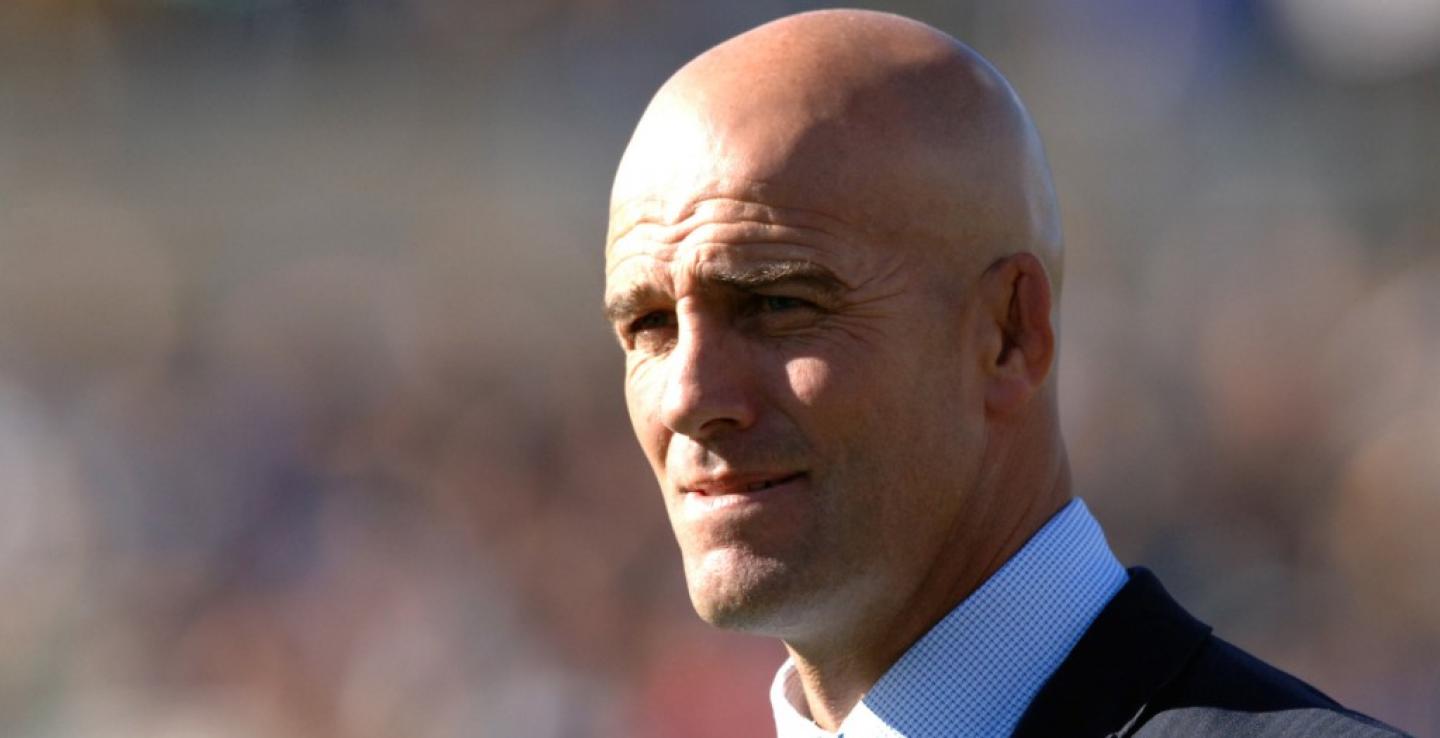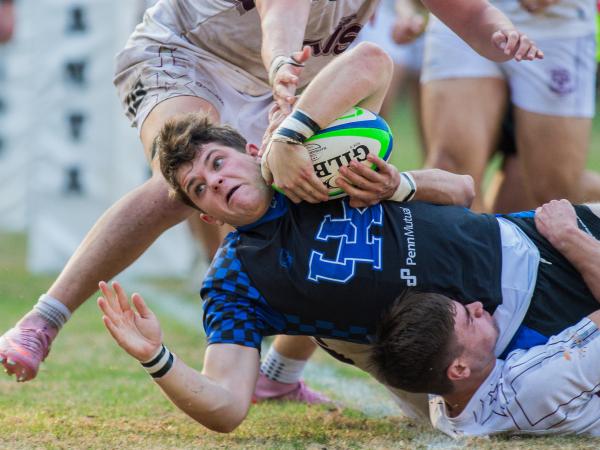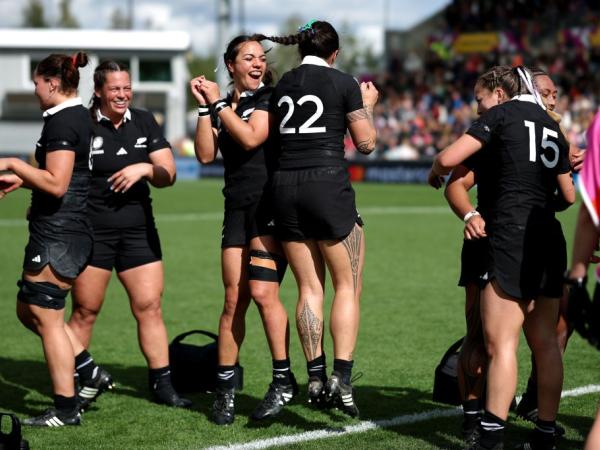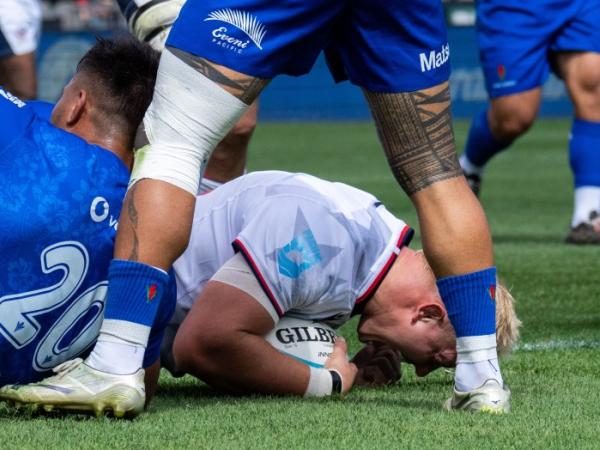Goff Rugby Report Editor Alex Goff sat down with new USA 15s MNT Coach John Mitchell to discuss his hiring and his approach to coaching a team that assembles in a few short weeks.
Mitchell spoke from his home in South Africa, but the New Zealand-born former All Blacks head guy will soon be traveling to London to take part in World Rugby meetings, and meet also with USA Rugby CEO Nigel Melville and High Performance Director Alex Magleby. In addition, Mitchell plans to meet with USA pros who are in Europe.
Then it will be to the USA, where Mitchell will attend the National Development Summit in San Francisco in just under two weeks, and after that Mitchell will visit San Diego and the USA 7s team at the Olympic Training Center.
So, a lot to do. And then once he gets started on the job of coaching the team, a lot to do, too.
Alex Goff: You’ve been away from coaching major national and pro teams for a couple of years. Seemed like you were settled in South Africa, but now you’re uprooting things and moving to the USA. Why did you take the USA job?
John Mitchell: I’ve been CEO of a packaging and manufacturing company for the last two years, taking time out from the game and just figuring out where I go next or whether I do go back into the game. I’ve been spending time with Super Sports analyzing games, working with a local university team that was struggling to communicate effectively, and spending time working with schools and mentoring coaches.
When Nigel gave me a call to see whether I would be interested I thought at that stage it would be a little bit impossible to achieve and do, but sitting down and looking at the periodization of the program and then talking to my family about it, I thought, OK, I could do this.
My wife said that the candle is still burning inside me to coach, and I don’t think it has ever left me or will ever leave me.
Goff: So you see coaching the USA as a challenge?
Mitchell: I see a country that has a designation as a Tier 2 nation but I see a huge populace and a dynamic game that I could help the players own. With us improving and playing solid rugby and being in competition with Tier 1 nations, by 2019 we’re going to become a very attractive rugby audience to World Rugby.
We’ll have to come though a lot of hard work but also - changing the mind-set and thinking about playing the game a little bit differently, and and aligning everyone to play a particular style of rugby that’s going to be conducive to having a higher level of success against nations that have been playing this level of rugby for quite some time.
Goff: Will you be changing the way the team plays - do you have a specific style that you like to see on the field?
Mitchell: I have an attacking style and a mind-set that the players will enjoy. It will challenge a few, but in saying that, it will involve everyone. It doesn’t rely on world-class players to deliver at a particular time. It’s really down to teamwork and ultimately requires development of skills so you can optimize the space that you get, and it requires a good engine and a high tempo as well.
So it’s up to us [coaches] to create a team mix in each match so we can maintain that style of play and that level of tempo throughout the game and in the last quarter - I think that was something we saw in the last World Cup. There was evidence of momentum and playing excellent rugby in the first 40 to 50 minutes, but the ability to create pressure, be it through defense or attack, was lacking toward the latter stages of the match.
Goff: You have spoken a little bit about how rugby can attract sports fans, and an attacking style might be more attractive to fans, as well.
Mitchell: What I will encourage to implement with the coaching group is just creating a high probability of scoring. We want to give the players a chance to walk it and learn it and understand it. It will take time to understand it but once it’s established and owned by the player group, it’s a really refreshing and exciting way to play the game.
The coaching group really starts the structure and direction, but the players have to be involved in the process.
Goff: You mention a player leadership group and a coaching group. That implies strongly a team approach to running the program. In your history with other teams, you’ve had some conflicts with players and with management. Have you changed your approach, gotten some perspective?
Mitchell: Ownership in our approach depends on the belief process of the group. That’s the art of coaching. All coaches have challenges with players, and a lot of my stuff is perception as well. In elite rugby, it’s not so much what you say or how you say it, but it’s how it’s received. In many ways it’s understanding the personality on how he needs to receives his messages, which is one of the most important things in coaching these days.
The team comes first, but you manage the players.
Have I changed my approach? Yeah, I think I have evolved and certainly in the last three years I have studied a lot of the mental skills - an area in coaching that excites me - I’ve spent a lot of time on how to tailor your messages to different individuals.
We spend a lot of time as coaches guessing about certain players, and I think we take too long trying to understand players’ DNA and the way he’s wired. And the players take too long too. if you can get that understanding early you start to build a good relationship. You can’t please everyone, but you can still have empathy.
Goff: So is it all about communication skills?
Mitchell: It comes down to how you communicate as a process in your working week. Fringe players are also involved in that. You’re going to need fringe players and you need to involve the leaders of the team. Everyone plays a part in owning the information on the field and off the field. I think my sabbatical has been useful in allowing my to think about those things.
Coaches need to communicate effectively and make sure everyone’s informed so that we can all make informed decisions. I’ve got a particular model that I use in this situation that makes them feel that they want to get back there. I have thought thoroughly about how we need to communicate effectively
Goff: The Americas Rugby Championship starts in early February in Texas. You’ve got very little time to get going. What are your plans?
Mitchell: I was asked if I am looking at long-term or short-term, and I think we’ve got to look at both. We’re getting a creating a team mix. We’re creating experience for young players.
It’s important that we work hard on the changes that we’re going to make and the changes that will be beneficial to us moving forward, and we need to focus on those changes more than the outcome. If we get the changes right, the outcomes will come, so it’s important that we don’t just go chase outcomes.
But you also can’t overdo the long-term approach. We have to get traction and get belief.
Goff: And you’ve got to pick a team and put in on the field, even when you have some players who may not be at international level - they might just be the best available.
Mitchell: If we’ve got positional weakness then we’ve got to accelerate and speed up their development. We’ve got to bring in players and they’ve got to know they’re competing with the guys.
There will always be fringe players, and we need to keep them involved and feeling they belong as well. As we travel around the States for test matches, there may be a fringe player not on the squad but will train with the squad.
I don’t think isolation improves anyone, so when somebody is dropped from the squad, you’ve got to keep the door open and keep them informed and included.
Goff: But this time you’re not really picking the squad, right, since you don’t really know the players?
Mitchell: I’m not particularly worried about that because that’s what a high performance system should be doing. Mike [Tolkin] has left a good platform for us to launch from. Alex Magleby and Dave [Williams] will be putting together the squad.
When you get a bit older you can visualize what you want to do, and I think we’ve got enough time and it’s a matter of how we pitch it and how we cut through our work … and how we communicate.
Everyone has good intentions. Somebody’s eyes might see athletes that are potentially better for the mix.
Goff: And what about picking the coaching staff?
Mitchell: I am working with Alex [Magleby] on the coaching staff. We have a philosophy around mentoring our own and looking at the personal development of those people. Between me, Alex, and Nigel we’ve got a huge network to draw from so consultants will come in to work on individual needs.
We’ll have a scrummaging and lineout coach, a backline coach, somebody responsible for attack, which is likely to be myself, and a defense coach and a skills coach.
Goff: What did you see as positive in the way the USA played in 2015?
Mitchell: I can only take my view of my SuperSport analysis during the World Cup, but I saw a lot of good stuff.
There was some great intent in defenses, with line speed and energy. There was clearly a plan to stop ball and man behind the advance line. I want to bring more of a zonal approach to that that will create accountability and measures to that.
In attack I saw them breaking the advantage line easily on first phase, and at times saw good set piece
and the ability to run and pass and run to space and stress the defense.
There’s a lot of good stuff there; it’s just a matter of players learning to deal with an arm wrestle and using all areas of space in the game.
I will help them grab shape and transition between attack and defense. They looked a little bit preoccupied in getting through the pattern that when it broke down they didn’t deal with the chaos and untidiness when it did occur. It’s about how you put shape back on the game when it’s a game of chaos and untidiness.”
































































